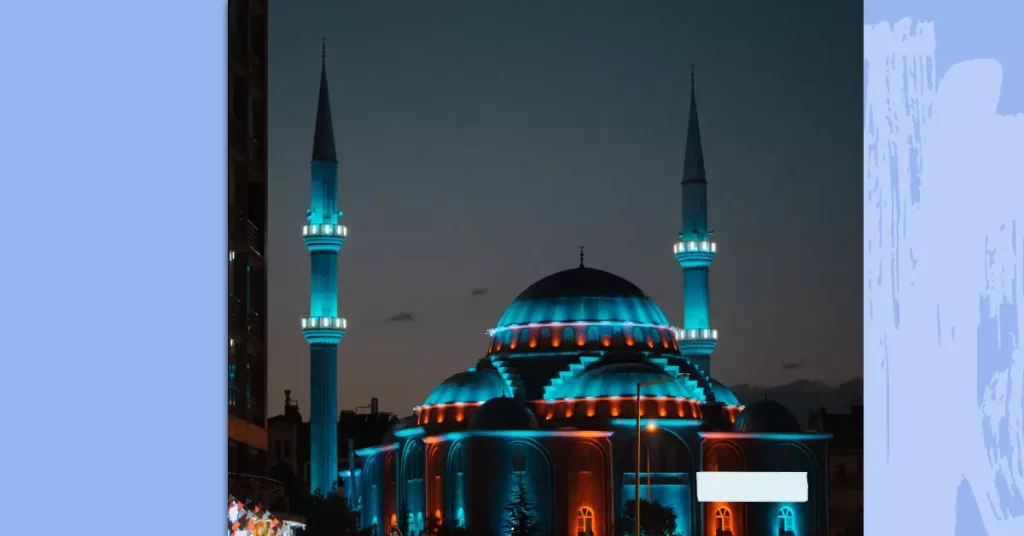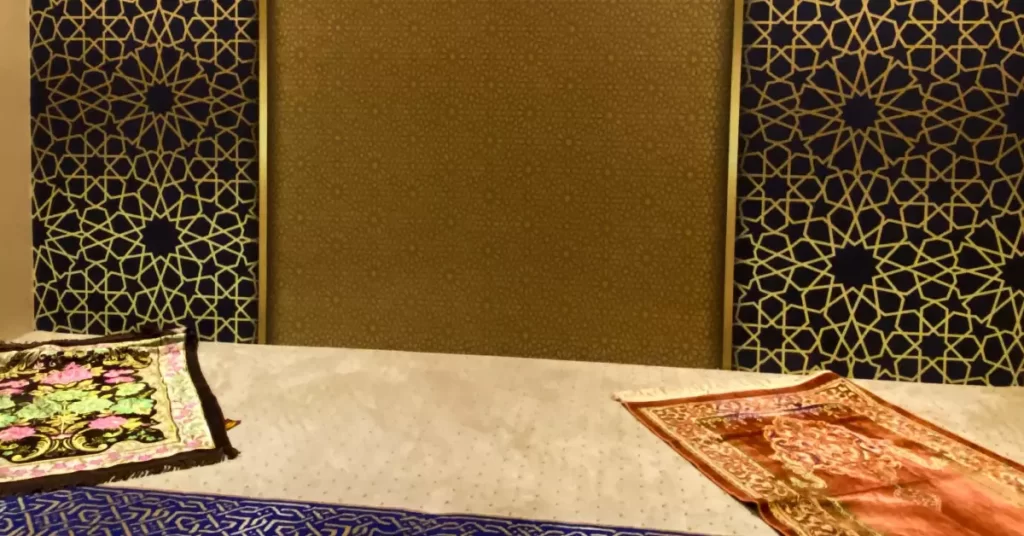If you’re looking for a quick getaway that combines cultural exploration with spiritual enrichment, then a short Islamic city break might be just what you need. These itineraries are designed to give you a taste of the rich history and traditions of Islamic civilisation, while allowing you to recharge your batteries and escape the hustle and bustle of everyday life.
Whether you’re interested in visiting the iconic mosques of Cairo, exploring the winding streets of Marrakech, or soaking up the vibrant atmosphere of Istanbul, there are plenty of short Islamic city break options to choose from. With carefully crafted itineraries that take in the most important sights and attractions, as well as lesser-known gems off the beaten track, you can be sure that you’ll get the most out of your trip. And with expert guides on hand to provide insight and context, you’ll come away with a deeper understanding of the Islamic world and its place in history.
Understanding Islamic City Breaks
When planning a short break to an Islamic city, it’s important to understand the cultural and religious significance of the destination. Islamic cities are known for their rich history, stunning architecture, and unique cultural experiences. Here are a few things to keep in mind when planning your Islamic city break:
1. Dress Code
Islamic cities are typically conservative in terms of dress code, and it’s important to respect local customs. Women should dress modestly, covering their shoulders and knees, and avoiding tight or revealing clothing. Men should also dress modestly, avoiding shorts and sleeveless shirts.
2. Religious Customs
Islamic cities are home to many mosques and religious sites, and it’s important to be respectful of local customs and traditions. Visitors should remove their shoes before entering mosques, and women should cover their heads with a scarf. It’s also important to be mindful of prayer times, which occur five times a day.
3. Food and Drink
Islamic cities typically have a wide variety of halal food options, but it’s important to be mindful of dietary restrictions. Pork and alcohol are typically not available in Islamic cities, and visitors should be respectful of local customs and traditions.
4. Cultural Experiences
Islamic cities offer a wide range of cultural experiences, from visiting historical sites to exploring local markets and bazaars. Visitors should be respectful of local customs and traditions, and should take the time to learn about the local culture and history.
By keeping these things in mind, you can ensure that your Islamic city break is both enjoyable and respectful of local customs and traditions.
Choosing the Perfect Destination
When planning a short Islamic city break, choosing the right destination is crucial. With so many options available, it can be overwhelming to decide where to go. Here are a few things to consider when choosing the perfect destination for your trip:
1. Location
Consider the location of the city you want to visit. Is it easily accessible by air or road? Is it located in a Muslim-majority country or does it have a significant Muslim population? These factors can affect the availability of halal food, prayer facilities, and other Muslim-friendly amenities.
2. Budget
City breaks tend to be more affordable than longer holidays, but costs can still vary depending on the destination. Consider the cost of flights, accommodation, food, and activities when deciding on your budget. Some cities offer affordable options for Muslim travellers, such as Istanbul or Marrakech.
3. Culture and History
Islamic city breaks offer the opportunity to explore the rich history and culture of Muslim-majority countries. Consider the cultural and historical significance of the city you want to visit. Some popular destinations for Islamic city breaks include Istanbul, Cairo, and Granada.
4. Muslim-Friendly Amenities
Consider the availability of Muslim-friendly amenities such as halal food, prayer facilities, and Islamic cultural sites when choosing a destination. Some cities are more accommodating to Muslim travellers than others, such as Dubai or Kuala Lumpur.
5. Weather
Consider the weather conditions of the destination you want to visit. Some cities may be too hot or too cold depending on the time of year, so make sure to check the weather forecast before booking your trip.
By considering these factors, you can choose the perfect destination for your short Islamic city break.
Planning Your Journey
When planning your short Islamic city break, there are a few key things to consider to ensure a smooth and enjoyable trip.
Choosing Your Destination
Firstly, consider which destination you would like to visit. There are many cities around the world with significant Islamic heritage, such as Marrakech, Istanbul, and Kuala Lumpur. Research the history and culture of each destination to determine which one will offer the experiences that interest you the most.
Timing Your Trip
Next, consider the timing of your trip. Islamic holidays and festivals, such as Eid al-Fitr and Eid al-Adha, can be a great time to visit certain destinations, as they offer unique cultural experiences. However, it’s important to note that some attractions and businesses may be closed during these times, so plan accordingly.
Budgeting Your Trip
Budgeting is also an important aspect of planning your journey. Consider the cost of flights, accommodation, food, and activities when determining your budget. Look for deals and discounts on travel websites, and be flexible with your travel dates to save money.
Planning Your Itinerary
Once you’ve chosen your destination and determined your budget, it’s time to plan your itinerary. Research the top attractions and experiences in your chosen city, and prioritize the ones that interest you the most. Consider using a travel agent or tour operator to help you plan your itinerary and make the most of your time in the city.
Preparing for Your Trip
Finally, make sure you’re prepared for your trip. Check the visa requirements for your chosen destination, and ensure that you have all necessary documents and vaccinations. Pack appropriate clothing for the climate and culture of your destination, and make sure you have any necessary medication or personal items with you.
By following these tips, you can plan a memorable and enjoyable short Islamic city break that meets your needs and interests.
Accommodation Tips
When it comes to choosing accommodation for your Islamic city break, there are a few things to keep in mind to ensure a comfortable and stress-free stay.
Firstly, consider the location. Look for a hotel or apartment that is situated close to the main attractions you want to visit. This will save you time and money on transportation, and allow you to make the most of your short break.
Secondly, check the facilities. Make sure that the accommodation you choose offers all the amenities you need, such as Wi-Fi, air conditioning, and a comfortable bed. If you are travelling with children, look for family-friendly accommodation that provides extra beds or cots.
Thirdly, consider the halal food options. Many hotels and apartments offer halal food options, but it’s always a good idea to check before booking. You can also look for accommodation that is situated close to halal restaurants or markets.
Fourthly, consider the price. Islamic city breaks can be expensive, so it’s important to find accommodation that fits your budget. Look for deals and discounts, and consider travelling during the off-peak season to save money.
Finally, read reviews from previous guests. This will give you an idea of the quality of service and facilities offered by the accommodation. You can check websites such as TripAdvisor or Booking.com to find honest and unbiased reviews from other travellers.
By keeping these tips in mind, you can find the perfect accommodation for your Islamic city break, ensuring a comfortable and enjoyable stay.
Cultural and Historical Sites
When planning a short Islamic city break, it’s essential to include visits to some of the most culturally and historically significant sites. Here are some of the must-see destinations that you should consider visiting:
1. Alhambra, Granada, Spain
Alhambra is a palace and fortress complex that was built during the Nasrid Dynasty in the 14th century. It’s a UNESCO World Heritage Site and one of the most visited tourist attractions in Spain. The site is home to beautiful Islamic architecture, including intricate carvings, stunning archways, and colourful tiles. It’s a must-visit destination for anyone interested in Islamic history and architecture.
2. Petra, Jordan
Petra is a stunning ancient city carved into red sandstone cliffs. It’s home to some of the most spectacular views the human eye can witness. The site is a UNESCO World Heritage Site and a popular tourist destination. It’s an excellent place to learn about Islamic history and culture and marvel at the incredible architecture.
3. The Blue Mosque, Istanbul, Turkey
The Blue Mosque is a stunning example of Ottoman architecture. It was built in the early 17th century and is one of the most famous landmarks in Istanbul. The mosque is known for its blue tiles and six minarets, which make it a striking sight to behold. Visitors can take a tour of the mosque and learn about its history and significance.
4. Masjid Al-Haram, Mecca, Saudi Arabia
Masjid Al-Haram is the holiest site in Islam. It’s home to the Kaaba, which is the most sacred site in Islam. The mosque is located in Mecca and is visited by millions of Muslims every year during the Hajj pilgrimage. Non-Muslims are not allowed to enter the mosque, but they can still appreciate its beauty from the outside.
5. Sheikh Zayed Grand Mosque, Abu Dhabi, UAE
Sheikh Zayed Grand Mosque is one of the largest mosques in the world. It’s a beautiful example of Islamic architecture and design, with intricate carvings, stunning archways, and a massive chandelier. Visitors can take a tour of the mosque and learn about its history and significance.
These are just a few of the many cultural and historical sites that you can visit on a short Islamic city break. Each destination offers a unique insight into Islamic history and culture, and they are all worth visiting if you have the opportunity.
Halal Dining Options
When it comes to halal dining options, many cities offer a variety of choices for Muslim travellers. From traditional local cuisine to international dishes, there are plenty of halal dining options available in most cities.
One of the best ways to find halal restaurants is to do some research online before you travel. Websites like The Infatuation and Eater NY provide lists of the best halal restaurants in cities like New York, while MuslimTravelGirl offers recommendations for Muslim-friendly cities in Europe.
In Bangkok, Phayathai Kitchen is a popular halal restaurant that offers a range of Thai dishes. In New York, you can try classic American dishes with a halal twist at places like Mignano Brothers and The Halal Guys. Amsterdam is another great city for halal dining, with plenty of options for Middle Eastern and Mediterranean cuisine.
When dining out, it’s always a good idea to double-check with the restaurant staff to ensure that the food is halal. Many restaurants will have halal certifications displayed, but it’s always better to be safe than sorry.
If you’re looking for halal options while on the go, you can also check out halal food trucks and markets. The Halal Guys food truck is a popular option in New York, while London’s Brick Lane Market offers a range of halal street food.
Overall, with a bit of research and some careful planning, it’s easy to find halal dining options in most cities. Whether you’re looking for a fine dining experience or a quick bite on the go, there are plenty of choices available for Muslim travellers.
Prayer Facilities
As a Muslim traveller, finding suitable prayer facilities can be a concern when planning a short city break. However, many cities across the world now offer prayer facilities, making it easier for Muslim travellers to fulfil their religious obligations while exploring new destinations.
When choosing your accommodation, look for hotels that offer prayer facilities on-site or nearby. Many hotels in Muslim-majority countries offer prayer rooms or even mosques within the hotel premises. In non-Muslim countries, some hotels may offer prayer mats and a designated space for prayer.
If you are unable to find suitable prayer facilities at your accommodation, look for nearby mosques or prayer rooms. Many cities have mosques that are open to visitors and offer prayer facilities. You can also check with the local tourist information centre for information on nearby prayer facilities.
In addition to mosques and hotels, many airports also offer prayer facilities. Some airports have designated prayer rooms, while others may offer a quiet area for prayer. Check with your airline or the airport’s website for information on prayer facilities.
When visiting tourist attractions, such as museums or art galleries, look for prayer facilities on-site. Many tourist attractions now offer prayer rooms or designated spaces for prayer. You can also check with the attraction’s website or information desk for information on prayer facilities.
Overall, finding suitable prayer facilities while on a short Islamic city break is easier than ever before. By planning ahead and researching your destination, you can ensure that you are able to fulfil your religious obligations while enjoying your travels.
Local Etiquette and Customs
When visiting Islamic cities, it’s important to be aware of local customs and etiquette to show respect for the culture and religion. Here are some guidelines to keep in mind:
Dress Code
Islamic cities have a conservative dress code, especially for women. It’s important to dress modestly and cover your shoulders and knees. Avoid wearing tight or revealing clothing. For men, shorts are generally not acceptable. It’s also important to remove your shoes before entering mosques or other religious sites.
Greetings
The most common greeting in Islamic cities is “Assalamu alaikum,” which means “peace be upon you.” Respond with “Wa alaikum assalam,” which means “and upon you be peace.” It’s also common to shake hands, but wait for the other person to initiate it.
Food and Drink
When eating, use your right hand to pick up food as the left hand is considered unclean. It’s also polite to accept food and drink with your right hand. Alcohol is generally not available in Islamic cities, and it’s important to avoid eating or drinking in public during Ramadan.
Religious Sites
When visiting mosques or other religious sites, dress modestly and remove your shoes before entering. Women should cover their heads with a scarf. It’s important to be respectful and quiet, and avoid taking photos during prayer times.
Cultural Sensitivity
Be aware of cultural differences and show respect for local customs and traditions. It’s important to avoid public displays of affection and to be mindful of your behaviour in public. Avoid pointing the soles of your feet towards others, as this is considered disrespectful.
By following these guidelines, you can show respect for the local culture and make the most of your short Islamic city break.
Packing Essentials
When it comes to packing for a short Islamic city break, it’s important to be mindful of the destination’s culture and dress codes. It’s also important to pack light, as you’ll likely be doing a lot of walking and carrying your luggage around.
Here are some essential items to consider packing for your short Islamic city break:
Clothing
Make sure to pack modest clothing that covers your shoulders and knees. This includes loose-fitting tops, long skirts or trousers, and a scarf or shawl to cover your head when entering mosques or other religious sites. It’s also a good idea to pack comfortable shoes for walking and exploring the city.
Toiletries
Pack travel-sized toiletries such as shampoo, conditioner, body wash, and toothpaste. If you’re travelling during the summer months, make sure to pack sunscreen and insect repellent. It’s also a good idea to pack wet wipes and hand sanitiser for when you’re on the go.
Electronics
Don’t forget to pack your camera or smartphone to capture all the amazing sights and experiences during your city break. Make sure to pack a universal travel adapter if you’re travelling from another country to ensure that you can charge your electronics.
Documents
Make sure to bring all necessary documents such as your passport, visa, and travel insurance. It’s also a good idea to make copies of these documents and keep them in a separate location in case they get lost or stolen.
Other Essentials
Other essential items to pack include a small backpack or purse to carry your essentials during the day, a reusable water bottle to stay hydrated, and a small first aid kit for any minor injuries or illnesses.
Remember to pack light and only bring what you need for your short Islamic city break. By packing smart, you’ll be able to fully enjoy your trip and create unforgettable memories.
Conclusion
In conclusion, short Islamic city breaks are a perfect way to explore the rich history and culture of Islamic cities. Whether you are interested in visiting ancient mosques, exploring the bustling markets, or admiring the stunning architecture, these cities have something for everyone.
When planning your itinerary, it is important to consider the time of year you will be visiting, as well as the local customs and traditions. Be sure to dress appropriately and respect the local culture.
To make the most of your short city break, we recommend prioritizing the top attractions and landmarks in the city, and planning your itinerary around them. This will ensure that you don’t miss out on any of the must-see sights.
Additionally, consider booking a guided tour or hiring a local guide to help you navigate the city and provide insights into the local culture and history.
With careful planning and a bit of flexibility, you can create the perfect itinerary for your short Islamic city break and have an unforgettable experience.



